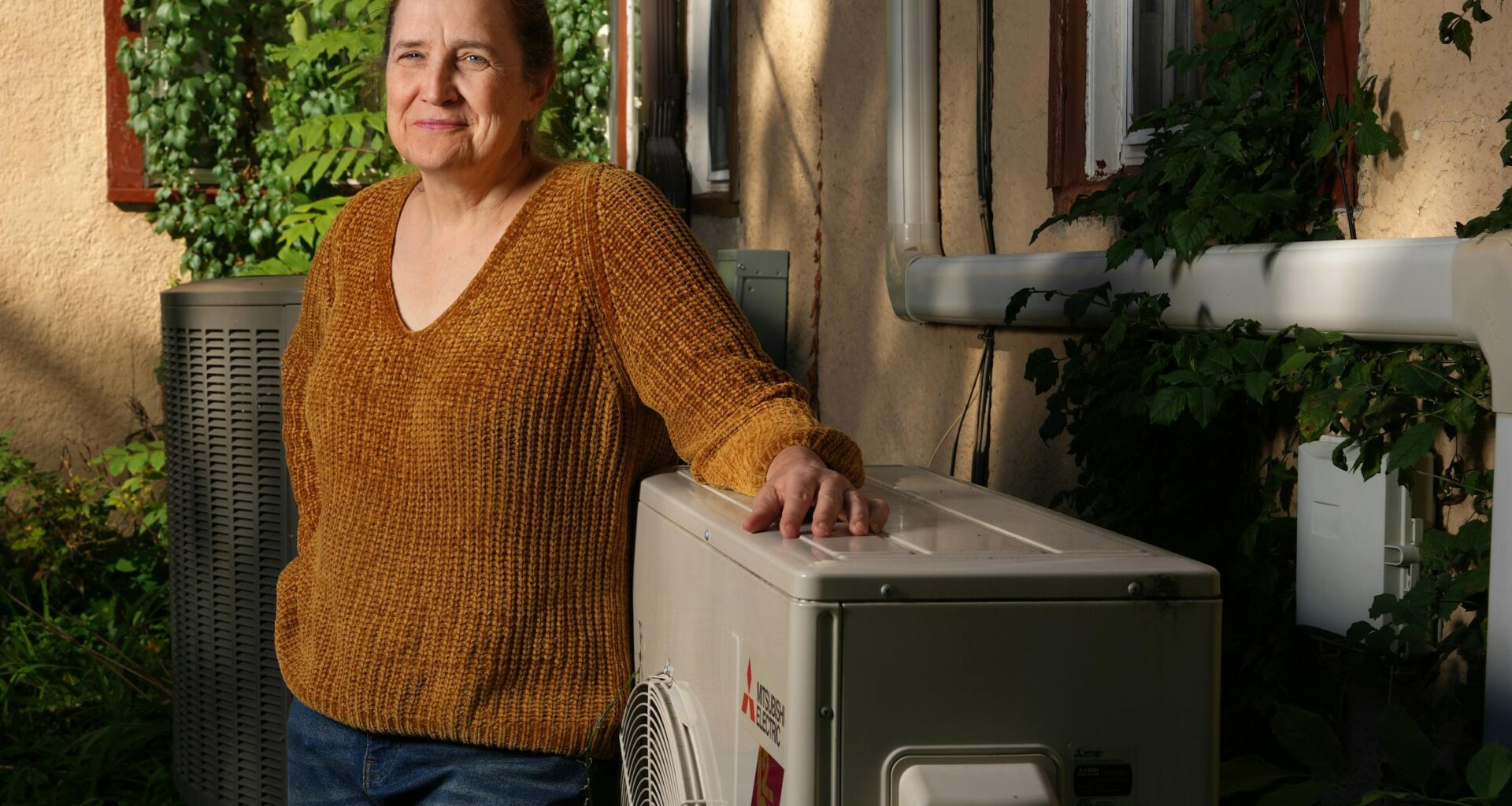Mary Britton remembers the distress she felt in the summer of 2019, when images of huge wildfires in Spain and Australia flared up on the internet.
The fires were made worse by climate change, studies showed. Britton, a financial analyst living in Minneapolis, responded by reducing her own carbon footprint.
She insulated her attic, replaced her gas water heater with an electric one and made other energy efficiency upgrades to slash the amount of natural gas she burned to heat her home. She also began sharing information about the upgrades with fellow Prospect Park neighborhood residents and pointed them to the local and federal rebates available to save money on the work.
The effort paid off. Residents of Prospect Park used 29% less natural gas between 2019 and the end of 2024, according to CenterPoint Energy, while citywide gas use fell by 20% during that period. That means Prospect Park cut its annual carbon emissions by about 1,620 metric tons, roughly the output of 378 gasoline cars in a year.
The Trump administration has turned away from the collective fight to slow global warming, shunning efforts by the United Nations and reversing federal policies that encouraged clean energy. In response, some Minnesotans who care about climate action are turning their attention to changes they can make locally.
Britton said she’s already in talks with other neighborhood associations and nonprofits to do similar work in their communities.
“That’s the exciting thing — these people feel part of something bigger,” she said. “Everybody waiting for somebody else to do something … that’s not going to work.”
In July, Congress rescinded hundreds of billions of dollars in federal tax credits established by the Inflation Reduction Act. Among the affected credits are the Energy Efficient Home Improvement Credit and the Residential Clean Energy Credit. Claiming those incentives can save homeowners up to 30% off the total cost for various home improvements, including replacing windows, putting in new insulation and installing heat pumps or solar panels. Those credits, which were previously available until 2032, now expire at the end of the year.
